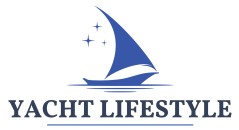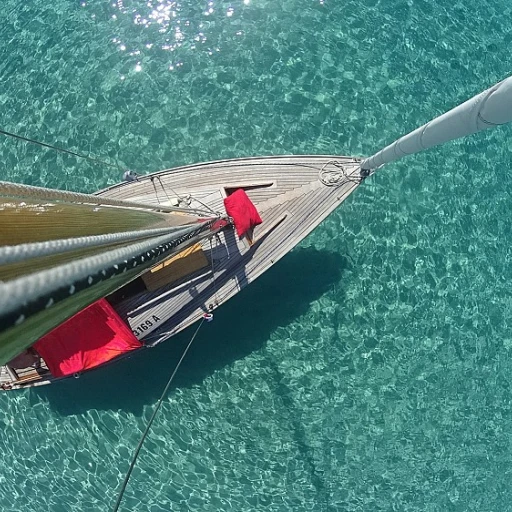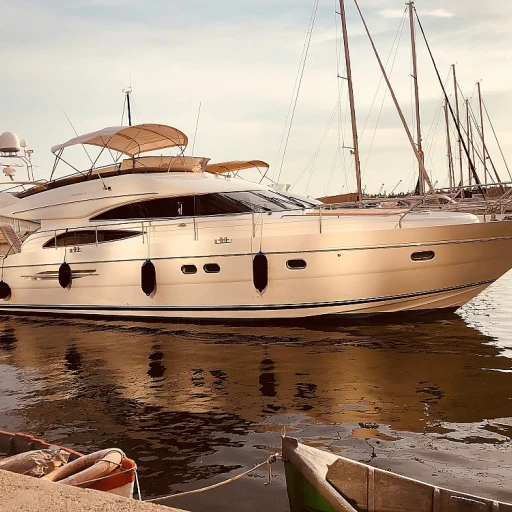Understanding Rent-to-Own in the Yacht Market
Introducing the Concept of Rent-to-Own Yachts
The yacht market has seen a fascinating evolution over time, particularly with the introduction of unique ownership structures like rent-to-own options. This model, long familiar to various industries, offers an intriguing alternative for those passionate about boating and desiring a pathway to yacht ownership. Rent-to-own, also known as lease-to-own, enters the maritime world as a striking alternative for both seasoned yacht enthusiasts and new aspiring yacht owners.
Rent-to-own yachts work by allowing individuals to rent the yacht for a predetermined period, after which they have the option to purchase it. During this rental period, payments made often contribute to the eventual purchase cost, a stark contrast to traditional boat rental methods where rental payments provide no equity. This arrangement opens diverse possibilities for people intrigued by owning luxury yachts without committing to a hefty upfront investment.
The benefits of rent-to-own options can be numerous, allowing potential yacht owners to gradually experience yacht ownership. Instead of fully committing to buying as in traditional boat or yacht transactions, this model offers a more flexible, trial-like period to assess if a particular yacht is suited to one's needs or lifestyle. For those wishing to experience the thrill of owning a yacht in prominent destinations like Fort Lauderdale or Lake Mead, this option presents an innovative path.
Cost considerations play a pivotal role here. With the advantage of a defined rental period, aspiring yacht owners can better manage financial commitments over time. Comparing traditional yacht ownership costs, rent-to-own might initially bear similarities to luxury yacht charter experiences, but with the potential equity gain, it offers a long-term financial advantage.
Advantages of Rent-to-Own Yachts
Exploring Unique Ownership Benefits
Rent-to-own yacht options present a variety of unique advantages for boating enthusiasts. Firstly, choosing this path offers potential yacht owners a flexible entry into yacht ownership. Instead of committing to buy a yacht outright, prospective owners can spend time enjoying the water while gradually investing towards full ownership. This can be particularly beneficial for those who wish to experience life aboard a yacht without the immediate financial burden.
Another significant advantage lies in the opportunity to experience different types of boats firsthand. From pontoon boats perfect for lake adventures to luxurious yachts ideal for ocean cruising, this system allows renters to explore various options. This hands-on experience offers invaluable insight, which can guide future purchases or adjustments to lease agreements. In bustling hubs like Fort Lauderdale, where yacht rentals and leases are popular, this can also translate to better investment decisions over time.
The wear and tear typically associated with boating is often reduced in a rent-to-own agreement. Equipment maintenance, including safety equipment and tank fuel, is usually covered by the leasing company during the rental period. Boaters can enjoy their time on the yacht with peace of mind, knowing that upkeep details are managed by professionals.
For those who dream of sailing the open seas or spending a day on Lake Mead, rent-to-own offers an accessible way to step into that lifestyle. Many agreements also offer the ability to transition into full ownership after a specified number of boating years, allowing continuous enjoyment without the hurried pressure of decision-making.
In addition, rent-to-own arrangements often have flexible terms, which can include options for captains and crew, allowing for a tailored boating experience. Agreements often cover daily rentals or longer lease periods, providing accessible avenues to test and refine one’s boating preferences.
Lastly, one of the more understated advantages is the diversity of financial models available within this framework. From competitive pricing to tailored lease agreements, these options remove many of the cost barriers typically associated with traditional ownership. As such, prospective owners can take a strategic approach to purchase that aligns with their personal and financial plans.
If you're interested in exploring yacht brokerage and sales in Florida, check out a comprehensive guide to yacht brokerage and sales to further your understanding of the available opportunities.
Challenges and Considerations
Navigating the Complexities of Rent-to-Own Yachts
\nAs you consider the rent-to-own option for acquiring a yacht, it is vital to understand the associated challenges and considerations to ensure a smooth experience. While the approach offers flexibility and gradual ownership, there are aspects that demand careful scrutiny.
\n\nFirst, the cost structure can be intricate. Unlike a straightforward boat rental or a standard boat lease, rent-to-own agreements often include clauses about wear and tear, maintenance costs, and insurance. Prospective yacht owners should thoroughly examine these agreements to identify who bears the responsibility for these expenses during the rental period.
\n\nMoreover, availability can be an issue. Not every yacht or pontoon boat is offered under rent-to-own terms, and high demand, especially in popular locations like Fort Lauderdale or lakeside destinations, might limit your options. It's advisable to check availability ahead of time and consider alternative timelines if immediate access to a vessel is a priority.
\n\nThe timing of payments in rent-to-own arrangements can also pose challenges. Defining when the rent turns into payments towards ownership can be nuanced and may vary significantly between providers. This is especially relevant when determining how much of the rental expenses are accruing towards eventual ownership versus being simply a boat rent.
\n\nLastly, there’s the legal landscape. Understanding the rights and obligations that accompany these arrangements is essential. Seeking legal advice or engaging a knowledgeable broker can provide clarity and protect your interests over time.
\n\nWhile some might find these complexities daunting, they shouldn’t overshadow the potential benefits of this model. With suitable planning, you could enjoy not just extra day water excursions on Lake Mead or beyond, but also a step closer to your dream yacht. To further educate yourself about cost considerations in similar arrangements, navigate to this comprehensive resource for practical insights.
Comparing Rent-to-Own with Traditional Yacht Ownership
Traditional Ownership vs. Rent-to-Own: A Comparative Insight
When diving into the world of yachting, one of the biggest decisions enthusiasts face is choosing between traditional yacht ownership and the rent-to-own model. Each option comes with its own set of benefits and challenges, impacting everything from cost to flexibility.
Traditional yacht ownership has long been the gold standard for many boat enthusiasts. Owning a yacht outright allows for complete control over the vessel, from customizing the interior to deciding when and where to sail. However, the initial cost can be prohibitive. Buying a boat involves significant financial commitment, not to mention ongoing expenses like maintenance, dockage, and insurance. These costs can quickly add up, especially in popular boating destinations like Fort Lauderdale or Lake Mead.
On the other hand, the rent-to-own model offers a more flexible approach. This option allows potential yacht owners to experience the joys of boating without the immediate financial burden of purchasing a yacht outright. Rent-to-own agreements often include a portion of the rental payments going towards the eventual purchase of the yacht, making it an attractive option for those who want to enjoy the boating lifestyle while working towards ownership.
When comparing these two options, several factors come into play:
- Initial Cost: Traditional ownership requires a significant upfront investment, while rent-to-own spreads the cost over time.
- Flexibility: Rent-to-own provides more flexibility, allowing you to test the waters before fully committing to buying a yacht.
- Maintenance and Upkeep: Traditional owners bear the full responsibility of maintenance, whereas rent-to-own agreements may include maintenance services.
- Usage: Consider how often you plan to use the yacht. Frequent boaters might find ownership more economical in the long run, while occasional users might benefit from rent-to-own.
Ultimately, the choice between traditional yacht ownership and rent-to-own depends on your financial situation, lifestyle, and long-term boating goals. Whether you're navigating the waters of Lake Mead or exploring the coastlines of Fort Lauderdale, understanding these options will help you make the best decision for your yachting journey.
Legal and Financial Aspects
Key Legal and Financial Elements in Rent-to-Own Yachts
Exploring the legal and financial aspects of rent-to-own yacht options is an essential step when considering this alternative to traditional yacht ownership. It's not just about understanding the costs and budgets, but also knowing what to expect legally.- Contracts and Agreements: Rent-to-own yacht arrangements typically require comprehensive contracts. These documents need to clearly outline the terms of the rental, lease duration, eventual purchase price, and any responsibilities for wear and tear. It's crucial to review these contracts thoroughly or consult with a legal expert to ensure your rights as a buyer are protected.
- Financial Considerations: When opting for a rent-to-own yacht, future buyers should also be aware of the different financial elements involved. This includes the initial deposit, monthly rental payments, and any additional costs such as maintenance, safety equipment, like boater's safety gear, and tank fuel expenses. Understanding these helps you plan your finances while enjoying the yacht over time.
- Insurance and Liability: Like with boat rentals, securing adequate insurance coverage is a necessity. Rent-to-own contracts sometimes include insurance provisions, but it’s important to ascertain that your particular usage, whether on a pontoon, lake, or day water scenarios, is covered. Liability coverage for passengers and captain is also a must, especially in popular boating areas like Fort Lauderdale.
- Title and Ownership Transfer: At the end of the rent-to-own term, transitioning from renter to owner involves a transfer of title. Legal clarity regarding the transition of ownership is essential to avoid disputes typically associated with traditional buy boat scenarios.
Future Trends in Rent-to-Own Yachts
Looking to the Future: A Sea of Possibilities
The rent-to-own model in the yacht industry is poised for transformation and growth, driven by changing consumer preferences and technological advancements. As potential boaters weigh the advantages, challenges, and financial aspects, this option increasingly presents a viable way to enjoy the luxury of boating without immediate full ownership.- Technological Advancements:
- Sustainability and Eco-Friendly Options:
- Customization and Flexibility:
- Marina Development and Infrastructure:













